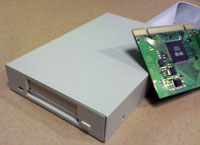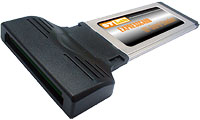Removing Elan's PSeries Drivers from The Windows Installations
Removing Elan's PSeries Drivers from The Windows Installations #PCMCIA #PC_Card #hardware http://t.co/Ohv9dhTZy3 pic.twitter.com/MOnZ6pWicb
— Synchrotech, Inc. (@synchrotech_inc) January 10, 2014Typically manufacturers provide a mechanism for removing drivers from the system. Elan, however, never wrote an uninstall routine. They did provide instructions for manually removing the drivers in the readme.txt file on the PSeries installation CD-ROM. Those instructions are reproduced here. These 5.07.07 release notes are for operating systems that PSeries readers were approved to run on. If you have inadvertently installed the PSeries drivers on systems newer than The Windows Server 2003 (eg. The Vista, 7, 8, etc.), you may have to account for changes in these procedures based on changes to The Windows. This applies to systems that had existing PSeries drives installed and were upgraded to systems newer than The Windows Server 2003.
In the case that these instructions don't work, or that changes in later Windows systems render these instructions entirely obsolete, the best course of action to permanently remove PSeries drivers is to back up all your data, reformat your system disk, and reinstall The Windows from scratch as per the instruction come from Microsoft when you purchase your copy of Windows. This assures that the PSeries drivers are entirely removed from a system.
----------oOo----------
************************************************
6 Uninstalling the PSeries drivers
************************************************
The PSeries drivers are fully plug and play in that they
will detect the PCMCIA hardware will no load if the
PCMCIA hardware is not present in the PC. Usually it is
not necessary and not recommended to completely
uninstall the PSeries drivers. If the drivers are to be
completely removed, the following sections explain how to
remove the drivers for the particular operating system.
DON'T FORGET!!! THE PCMCIA HARDWARE WILL
FAIL TO OPERATE CORRECTLY WITHOUT THE
PSERIES DRIVERS INSTALLED!
6.1 Uninstalling the PSeries drivers in Windows 9x/Me
==================================================
To uninstall the PSeries drivers, go to the "Control Panel",
run "Add/Remove Programs", select the PSeries Drivers
and click "Change/Remove".
Re-boot the computer into "Safe Mode" (by pressing "F8"
during boot). Double click the "System" icon in the control panel,
select "Device Manager" and expand the "PCMCIA socket" entry
highlight each entry for the PCMCIA socket and click "Remove".
From Windows Explorer delete the files:
c:\windows\inf\pseries.inf
c:\windows\inf\pseries.pnf
c:\windows\system\pseries.vxd
From Windows Explorer, go to the c:\windows\system\oldpcmcia
folder and move the "PCMCIA.INF" file to the c:\windows\inf folder.
Run the registry editor (regedit.exe) an delete the key:
"HKEY_LOCAL_MACHINE\SYSTEM\CurrentControlSet
\Services\VxD\PSeries"
Shut down the PC and remove the PC-Card adapter hardware.
Re-boot the PC and the driver is no longer installed.
----------oOo----------
6.2 Uninstalling the PSeries drivers in Windows NT
==================================================
To uninstall the PSeries drivers:
1) Shut down the PC and remove the PC-Card adapter hardware.
2) re-boot the PC and go to the "Control Panel", run
"Add/Remove Programs", select the PSeries Drivers and
click "Change/Remove".
3) Run the registry editor (regedit.exe) an delete the key:
"HKEY_LOCAL_MACHINE\SYSTEM\CurrentControlSet\Services\PSeries"
4) From Windows Explorer delete the file:
c:\winnt\system32\drivers\pseries.sys
The PSeries driver is now no longer installed.
----------oOo----------
6.3 Uninstalling the PSeries drivers in Windows 2000/XP & Server 2003
=====================================================================
Version 5.06 of the PSeries driver introduced more integrated
operation with the Windows 2000 driver model. So there
are differences in the way previous and later releases
are uninstalled.
----------------------------------------------------------
To uninstall the PSeries 5.05 and earlier release drivers:
----------------------------------------------------------
1) Shut down the PC and remove the PC-Card adapter hardware.
2) re-boot the PC and go to the "Control Panel", run
"Add/Remove Programs", select the PSeries Drivers and
click "Change/Remove".
3) Run the registry editor (regedit.exe) an delete the key:
"HKEY_LOCAL_MACHINE\SYSTEM\CurrentControlSet\Services\PSeries"
4) From Windows Explorer delete the file:
c:\winnt\system32\drivers\pseries.sys
The PSeries driver is now no longer installed.
-------------------------------------------------
To uninstall the PSeries 5.06 to 5.07.02 drivers:
-------------------------------------------------
1) go to the "Control Panel", run "Add/Remove Programs",
select the PSeries Drivers and click "Change/Remove".
2) From Windows Explorer delete the file:
c:\winnt\inf\pcmcia.inf
then rename the c:\winnt\inf\pcmcia.old file to
c:\winnt\inf\pcmcia.inf
To successfully remove all traces of the PSeries driver, you
must NOT remove the PCMCIA adapter hardware from the PCI slot
until you have performed the following step. IF you have
moved the adapter from another PCI slot at any time, then
you will need to re-do this step with the hardware in
every slot that was previously used. (Windows 2000 preserves
the setup independently for each PCI slot in the PC).
3) Open the "Device Manager" and expand the "PCMCIA socket"
entry, highlight each entry for the PCMCIA socket,
right-click and select "Uninstall...".
Finally, when you have completed the above step for each PCI
slot the PCMCIA adapter has been in, you can do the
following steps...
4) Run the registry editor (regedit.exe) an delete the key:
"HKEY_LOCAL_MACHINE\SYSTEM\CurrentControlSet\Services\PSeries"
5) From Windows Explorer delete the file:
c:\winnt\system32\drivers\pseries.sys
6) Shut down the PC and remove the PC-Card adapter hardware.
When you Re-boot the PC and the driver is no longer installed.
----------oOo----------
-----------------------------------------------------
To uninstall the PSeries 5.07.03 (and later) drivers:
-----------------------------------------------------
1) go to the "Control Panel", run "Add/Remove Programs",
select the PSeries Drivers and click "Change/Remove".
2) From Windows Explorer delete the file:
c:\winnt\inf\pseries.inf
then rename the c:\winnt\inf\pcmcia.old file to
c:\winnt\inf\pcmcia.inf
To successfully remove all traces of the PSeries driver, you
must NOT remove the PCMCIA adapter hardware from the PCI slot
until you have performed the following step. IF you have
moved the adapter from another PCI slot at any time, then
you will need to re-do this step with the hardware in
every slot that was previously used. (Windows 2000/XP preserves
the setup independently for each PCI slot in the PC).
3) Open the "Device Manager" and expand the "PCMCIA socket"
entry, highlight each entry for the PCMCIA socket,
right-click and select "Uninstall...".
4) Finally, when you have completed the above step for each PCI
slot the PCMCIA adapter has been in, you can shut down the
PC and remove the PC-Card adapter hardware.
When you Re-boot the PC and the driver is no longer installed.
----------oOo----------
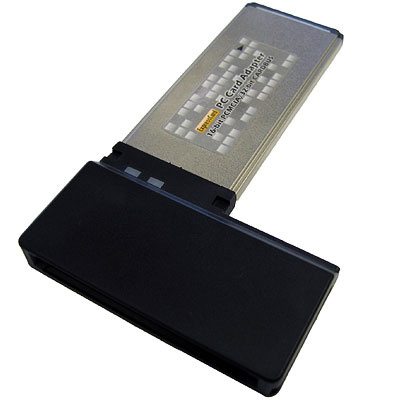
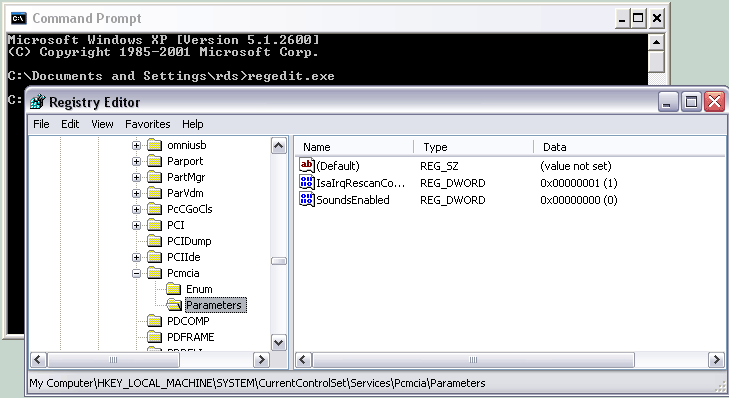
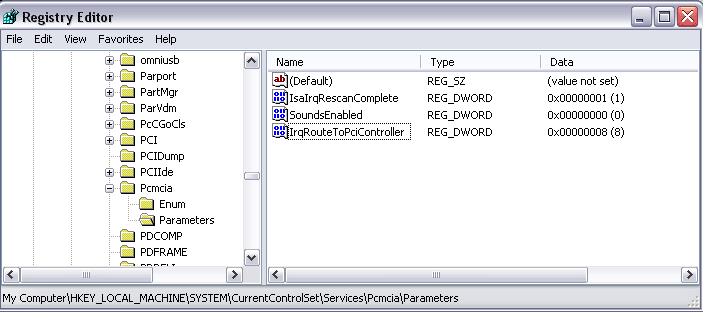

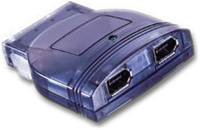 Synchrotech regrets to inform our customers that the popular Ratoc Systems, International, Inc. SCSI host adapter products are now at End Of Life (EOL).
Synchrotech regrets to inform our customers that the popular Ratoc Systems, International, Inc. SCSI host adapter products are now at End Of Life (EOL).

